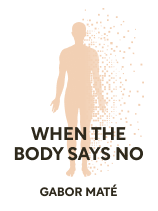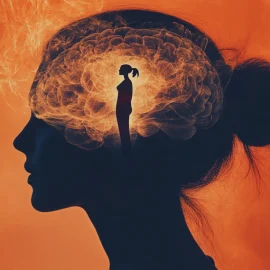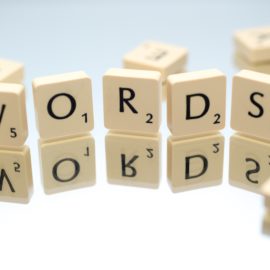

This article is an excerpt from the Shortform book guide to "When the Body Says No" by Gabor Maté. Shortform has the world's best summaries and analyses of books you should be reading.
Like this article? Sign up for a free trial here .
What are the main causes of stress? What is the difference between acute and chronic stress?
According to Dr. Gabor Maté, stress is the body’s response to a threat. There are two kinds of stress: acute and chronic stress, which have different triggers and effects on the body.
Keep reading to learn about the causes of stress.
Stress Is a Response to Threat
What are the main causes of stress? Stress is a reaction triggered by a threat, which can be real or perceived. As Dr. Maté describes, a threat must be perceived and interpreted first by the mind, which then sends signals to the body’s systems for a response. Threats can be a multitude of specific things, but the common element is your mind’s perception of the lack (or potential loss of) something necessary for survival. This could be anything from food or shelter to love and connection.
According to Maté, the situational factors that trigger stress are: “uncertainty, conflict, lack of information, and loss of control.”
When the brain perceives “uncertainty, conflict, lack of information, or loss of control,” it activates the threat response, which means the hypothalamus, pituitary, and adrenal glands (“HPA Axis”) secrete hormones, including cortisol. Cortisol is the body’s anti-inflammatory, Maté explains. Inflammation happens throughout the body in response to a threat, and then cortisol resolves it by calming the inflammation. However, problems occur when this “HPA axis” is not functioning correctly and too much or too little cortisol flows through your body.
According to Maté, resolving the threatening situation (i.e. regaining control, or resolving the conflict) is the only way to deactivate the HPA stress response—but we often can’t. Usually, we’re not consciously aware of what the problem is, or we’re not in a position to fix it. This is why many of us live with chronic stress without even knowing.
| The Three Stages of Threat Response In The Body Keeps the Score, Dr. Bessel van der Kolk discusses the effects of trauma on health. He explains that in terms of stress reaction, there are three stages of threat response wired into us. Call for help: This can include verbally calling for help in an immediate crisis situation; in everyday situations, it can simply be reaching out to a friend for support, or giving subtle non-verbal cues that you need something. Fight or flight: If nobody is available to help, or you need to act immediately, your body responds by activating the sympathetic nervous system and the resulting physiological responses, such as releasing adrenaline and cortisol. Freeze: If you can’t fight or flee the threat, your body goes into freeze, or “collapse,” mode. In this state, many of your body’s systems begin to shut down, and you may experience dissociation, where you may be unaware of pain. In applying these stages to Maté’s theory, when a person is unable to resolve a “threat” situation, such as when a child has no escape from an abusive parent, their body remains over long periods of time in either stage 2, resulting in hypervigilance, or stage 3, resulting in detachment and repression of emotion. In both cases, remaining chronically in such a physiological state is extremely destructive to the body’s organs and systems. |
Threats in the Modern World
When we think of stressful events, we often think of things like a car accident, a divorce, or loss of a loved one. When we experience these sorts of events, we feel the stress consciously and intensely. Maté defines this as acute stress. He acknowledges that too much of this kind of stress can be harmful, but says the more harmful form of stress is chronic—a low-grade constant stress reaction happening in our bodies throughout our lives. Much of this chronic stress is a product of our lifestyles.
- Acute stress is a natural response to the immediate presence of danger. The body initiates the “fight or flight” response, we actually flee or fight the threat, and then the body goes back to homeostasis. It’s natural and even healthy to occasionally experience this in life.
- Chronic stress is when the “fight or flight” response is activated over long periods of time, without ever being resolved—because it’s not actually a situation where we can flee or fight, and/or we’re not really aware of the “threat.” This process is more subtle and unconscious. This kind of stress is not normal or healthy.
Maté says stress response is evolutionarily built into us because it’s functional and necessary for our survival. But the kinds of “threats” we tend to perceive in the modern world are not the same ones we’re built to respond to. We’re evolutionarily built to respond to threats such as predators or famine, but we typically don’t have those threats now. So according to Maté, our bodies respond to other kinds of perceived threats that we don’t consciously think of as threats; for example, if we’re overworked or we don’t have satisfying relationships.
| Activate Your Internal Locus of Control The need for control is an evolutionary survival mechanism in humans. The greater control our ancestors had over their environments, the more likely they could avoid starvation or predation. However, as Maté points out, our instinct to want to control our environments can actually be counterproductive for life in modern society, in which there are numerous facets that we can’t possibly have control over, such as traffic or a micromanaging boss. In these cases, psychologists argue that it’s crucial that we learn to respond appropriately to the stress caused by lack of control. When you shift to a perspective of an “internal locus of control,” you’ll decrease the amount of stress you experience from these situations. In other words, remember that even when an external situation isn’t within your control, you can still control your reaction to it. |

———End of Preview———
Like what you just read? Read the rest of the world's best book summary and analysis of Gabor Maté's "When the Body Says No" at Shortform .
Here's what you'll find in our full When the Body Says No summary :
- How stress can manifest as chronic illness
- How to heal from and avoid stress-related diseases
- Why toxic positivity can make you sick






